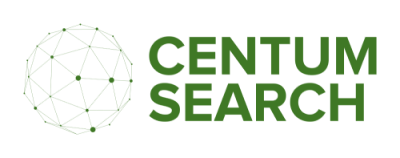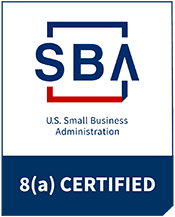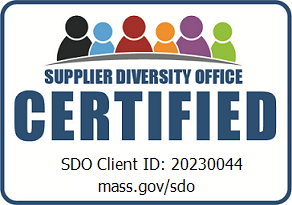From Resume to Results, What Sets Top Tech Talent Apart
In 2025, the difference between good and exceptional talent often extends far beyond the technical skills listed on a résumé.
While technical proficiency remains essential, research consistently shows that high-performing tech professionals possess distinct qualities that drive long-term success and business impact. For both candidates aiming to stand out and talent acquisition teams seeking to identify future stars, understanding these deeper differentiators is crucial.

Beyond Technical Expertise: The True Differentiators
McKinsey research reveals that top-performing tech talent delivers up to 800% more productivity than average performers - a staggering difference that reshapes company outcomes. This dramatic gap is not simply the result of superior coding skills or deeper technical knowledge. Instead, it emerges from a unique blend of attributes that enable these professionals to create exceptional value, adapt to disruption, and drive innovation across teams and organizations.
Learning Agility
In an industry where technologies evolve rapidly, the ability to continuously learn and adapt has become the most critical skill for tech professionals. High performers exhibit a learning mindset that goes well beyond basic upskilling. They proactively seek out new knowledge, often venturing into unfamiliar domains without waiting for formal training or explicit direction. Their curiosity isn’t limited to technical requirements as they show a genuine interest in understanding the business objectives and broader context of their work.
This learning agility is characterized by a willingness to unlearn outdated practices, experiment with new tools, and apply insights from one domain to solve problems in another. Such adaptability ensures that top talent remains relevant and valuable even as technologies and business priorities shift. Organizations that foster a culture of continuous learning and encourage this mindset see greater resilience and innovation during times of change.
Problem-Solving
Elite tech talent approaches problems differently. Rather than jumping straight to technical solutions, they first ensure they understand the broader business context and the real problem that needs to be solved. This means engaging stakeholders, asking clarifying questions, and challenging assumptions to get to the root of the issue.
High-potential candidates break complex problems into manageable components, systematically analyze each part, and consider multiple approaches rather than fixating on the first idea. They weigh the trade-offs of different solutions, balancing technical elegance with business outcomes. Importantly, they communicate their reasoning clearly, ensuring both technical and non-technical stakeholders are aligned. During interviews, candidates who can articulate not just what they did, but why they did it and how their approach benefited the business, demonstrate this highly valuable trait.
Collaboration and Emotional Intelligence
Contrary to outdated stereotypes, today’s high-performing tech professionals excel at collaboration. Research shows that technical work rarely happens in isolation; the ability to work effectively with diverse teams is essential for success. Top performers possess strong communication skills, enabling them to bridge gaps between technical and non-technical audiences. They give and receive constructive feedback, demonstrate empathy, and remain aware of team dynamics.
Emotional intelligence (EI) is increasingly recognized as a core skill, not a soft one. High EI allows tech professionals to navigate complex interpersonal situations, resolve conflicts, and foster psychological safety within teams. This environment encourages risk-taking and innovation, as team members feel comfortable sharing ideas and learning from failure. Harvard Business Review and other thought leaders emphasize that as technology becomes integrated with every business function, these human-centric skills are as critical as technical expertise.
Ownership Mindset
Perhaps the most powerful trait of exceptional tech talent is an ownership mindset—taking responsibility for outcomes beyond assigned tasks. Professionals with this mindset act proactively, seeking out problems to solve even if they fall outside their immediate scope. They focus on the business impact of their work, not just on completing tasks, and treat company challenges as their own.
This ownership mentality transforms technically skilled individuals into invaluable team members who drive organizational success. They anticipate potential issues, follow through on commitments, and continuously look for ways to improve processes and outcomes. In a world where adaptability and initiative are prized, this trait is often what separates good from great.
Actionable Tips for Tech Candidates
To stand out beyond your résumé and demonstrate these differentiators, tech professionals should:
- Showcase your learning journey: Highlight continuous learning through side projects, open-source contributions, or certifications that reflect adaptability and initiative. Share stories about how you’ve proactively addressed skill gaps or embraced new technologies.
- Develop your storytelling: Prepare specific examples that illustrate how you’ve taken ownership of projects, collaborated across teams, and solved complex problems with measurable business impact. Use frameworks like SARR (Situation-Action-Result-Reflection - dive deeper on How to Answer Behavioral Interviews: https://www.centumsearch.com/how-to-answer-behavioral-interview-questions-with-the-sarr-method) to structure your responses.
- Demonstrate business acumen: Research the company’s business model and current challenges before interviews. Frame your technical skills in terms of how they can address these challenges and drive outcomes.
- Build your network: Actively participate in tech communities, attend industry events, and engage in knowledge sharing. Networking is a key capability for career advancement, providing access to new opportunities and diverse perspectives.
What Talent Teams Should Look For
For talent acquisition professionals seeking to identify high-potential candidates, a deeper interview approach is essential:
- Focus on problem-solving approach: Ask candidates to walk through their process for solving a complex problem. Look for those who seek to understand the business context, break down problems systematically, and consider multiple approaches. Evaluate how they balance technical and business priorities.
- Assess learning agility: Explore how candidates have developed skills that didn’t come naturally or how they’ve adapted to new technologies. The best responses reflect self-awareness, proactive learning, and the ability to apply knowledge in new contexts.
- Probe for collaboration and EI: Use behavioral questions to uncover how candidates have worked within diverse teams, navigated conflict, and contributed to a psychologically safe environment. Consider group exercises or pair programming to observe these skills in action.
- Spot the ownership mindset: Listen for stories where candidates took initiative, drove change, or took responsibility for outcomes beyond their job description. Look for language that reflects accountability and a commitment to results.
The Business Impact of Hiring Right
Organizations that prioritize these differentiators in their hiring process see tangible, lasting benefits. According to McKinsey, companies with top tech talent can accelerate digital transformation by 20-30% and achieve significant cost savings.
Teams with strong collaboration skills deliver higher-quality code with better test coverage, as highlighted by Stack Overflow research. Moreover, a culture that values learning agility, problem-solving, collaboration, and ownership leads to greater innovation, higher retention, and more resilient teams—qualities that are essential for navigating today’s fast-paced tech landscape.
Moving Forward Together
As the tech landscape continues to evolve, both candidates and hiring teams must look beyond technical skills to identify the traits that truly drive exceptional performance. By focusing on learning agility, structured problem-solving, collaboration, emotional intelligence, and ownership, we can build stronger teams and more successful careers.
Sources:
- McKinsey & Company. Increasing your return on talent: The moves and metrics that matter. Retrieved July 13, 2025, from https://www.mckinsey.com/capabilities/people-and-organizational-performance/our-insights/increasing-your-return-on-talent-the-moves-and-metrics-that-matter
- McKinsey & Company. Tech talent gap: Addressing an ongoing challenge. Retrieved July 13, 2025, from https://www.mckinsey.com/capabilities/mckinsey-digital/our-insights/tech-forward/tech-talent-gap-addressing-an-ongoing-challenge
- Forbes Tech Council. 15 Characteristics Of A High-Performing Tech Team (And Why They Matter). Retrieved July 13, 2025, from https://www.forbes.com/councils/forbestechcouncil/2022/08/25/15-characteristics-of-a-high-performing-tech-team-and-why-they-matter/
- HackerEarth. Learning Agility: What Is It And How to Measure It? Retrieved July 13, 2025, from https://www.hackerearth.com/blog/learning-agility
- Harvard Division of Continuing Education. The Top Skills Employers Seek Have Nothing to Do With Technology. Retrieved July 13, 2025, from https://professional.dce.harvard.edu/blog/the-top-skills-employers-seek-have-nothing-to-do-with-technology/
- LinkedIn. The Importance of Soft Skills in IT Staffing: Why Communication and Collaboration Matter. Retrieved July 13, 2025, from https://www.linkedin.com/pulse/importance-soft-skills-staffing-why-communication-collaboration-xf65c/
- Spark Hire. 27 Interview Questions to Reveal High Potential. Retrieved July 13, 2025, from https://www.sparkhire.com/learn/interviewing/high-potential-hires-interview-questions/
- Gartner Peer Community. How Do You Build an ‘Ownership Mindset’ on Your Team? Is It Possible to Train People to Think like This, or Is It an Innate Quality You Have to Hire for?Retrieved July 13, 2025, from https://www.gartner.com/peer-community/post/how-build-ownership-mindset-team-it-possible-to-train-people-to-think-like-it-innate-quality-have-to-hir
Subscribe to our newsletter!
Resources for Careers, Talent Acquisition and Management







